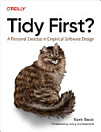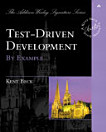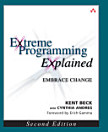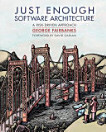Refactoring: Ruby Edition
ਇਸ ਈ-ਕਿਤਾਬ ਬਾਰੇ
With refactoring, programmers can transform even the most chaotic software into well-designed systems that are far easier to evolve and maintain. What’s more, they can do it one step at a time, through a series of simple, proven steps. Now, there’s an authoritative and extensively updated version of Martin Fowler’s classic refactoring book that utilizes Ruby examples and idioms throughout–not code adapted from Java or any other environment.
The authors introduce a detailed catalog of more than 70 proven Ruby refactorings, with specific guidance on when to apply each of them, step-by-step instructions for using them, and example code illustrating how they work. Many of the authors’ refactorings use powerful Ruby-specific features, and all code samples are available for download.
Leveraging Fowler’s original concepts, the authors show how to perform refactoring in a controlled, efficient, incremental manner, so you methodically improve your code’s structure without introducing new bugs. Whatever your role in writing or maintaining Ruby code, this book will be an indispensable resource.
This book will help you
- Understand the core principles of refactoring and the reasons for doing it
- Recognize “bad smells” in your Ruby code
- Rework bad designs into well-designed code, one step at a time
- Build tests to make sure your refactorings work properly
- Understand the challenges of refactoring and how they can be overcome
- Compose methods to package code properly
- Move features between objects to place responsibilities where they fit best
- Organize data to make it easier to work with
- Simplify conditional expressions and make more effective use of polymorphism
- Create interfaces that are easier to understand and use
- Generalize more effectively
- Perform larger refactorings that transform entire software systems and may take months or years
- Successfully refactor Ruby on Rails code
ਰੇਟਿੰਗਾਂ ਅਤੇ ਸਮੀਖਿਆਵਾਂ
ਲੇਖਕ ਬਾਰੇ
Jay Fields is a software developer for DRW Trading and a frequent conference presenter. Jay has a passion for discovering and maturing innovative solutions. Jay’s website is available at www.jayfields.com.
Shane Harvie has delivered software in Agile environments in the United States, India, and Australia. He works for DRW Trading in Chicago and blogs at www.shaneharvie.com.
Martin Fowler is Chief Scientist at ThoughtWorks and one of the world’s leading experts in the effective design of enterprise software. He has pioneered object-oriented development, patterns, agile methodologies, domain modeling, UML, and Extreme Programming. His books include Refactoring, Analysis Patterns, and UML Distilled. His book, Patterns of Enterprise Application Architecture, won Software Development’s Jolt Productivity Award and Javaworld.com’s best Java book award.







